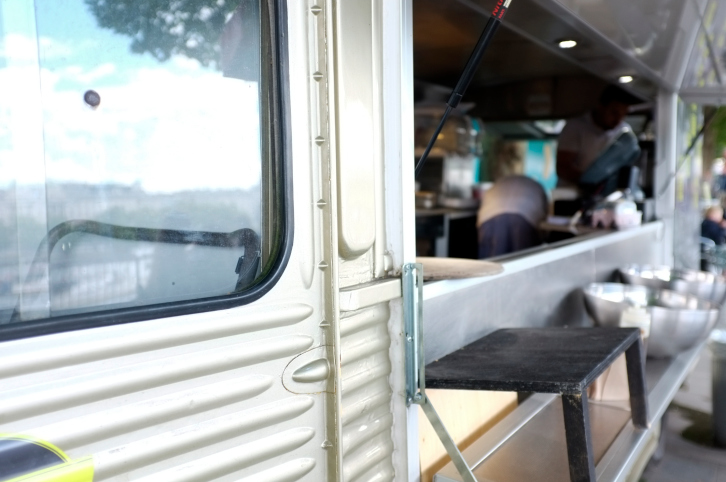By Cliff Ennico
“My wife and I are planning to start a food truck business, but are confused about all the licenses and permits we will need to operate the truck. Do we need all the same licenses that a regular restaurant would need?”
The food truck industry has boomed in recent years and, as with any innovation in the world of business, the lawyers are playing “catch up” here.
Generally, if your business provides a product or service that has the potential to injure someone (physically or financially) if is abused or done poorly, chances are you will have to get at least one permit before you start your business. When it comes to food service, you have to consider licenses at both the state and local government level.
Let’s start with the basics: you should register your “trade name” or “DBA” with your county clerk’s office. That is the name that will appear on your truck, not the name of your company. You also should have applied for a sales tax permit or “business license” from your state’s tax authority. Take care of these first.
Then, visit your state’s online licensing center. Virtually all states now have a website listing all of the licenses and permits your state requires for any type of business. Search online for “[your state] licensing center” and you should find a link to the right website.
Searching the licensing website may be tricky, as the people who set these up are not search engine optimization (SEO) experts. To search the site correctly, you need to learn what your state government calls your business. A search for “food truck” may come up with nothing, while a search for “food service” may come up with several licenses for food trucks. A local business lawyer may be able to help you with that, but be aware that experienced lawyers aren’t always familiar with every single government license.
With luck, you will find a page on the licensing website that deals specifically with food trucks and lists everything you need to do, along with links to the appropriate state and local government agencies. If that doesn’t happen, here’s what you need to do.
First, contact the state agency that regulates restaurants. In most states, this will be the Department of Consumer Protection (DCP) or Department of Public Health (DPH). Look at the website, get the telephone number for the “licensing division”, and call them on the phone. It may take a while, but you should be able to get through to someone who deals with food trucks, and they will tell you exactly, step by step, what you have to do. If your state has both a DCP and a DPH, call them both as they may have overlapping regulations for food trucks, and it’s better to be safe than sorry.
You should not be afraid to speak to these people – they are normally very friendly, and calls like this are exactly what they are paid to do (with your taxpayer dollars). They should be very co-operative and will even sometimes help you fill out the license application forms if you have questions.
Next, you will need to contact the state agency that regulates motor vehicles. In most states, this will be the Department of Transportation (DOT) or the Department of Motor Vehicles (DMV). Most states have rules about the weight, capacity, and maintenance of food trucks. Follow the same procedure as you did with DCP and DPH – look up the “licensing division” for each agency, call them and make a friend who can walk you through the bureaucracy.
Now that you’ve identified every state government permit you need, you now have to spend an afternoon at your local City or Town Hall (painful thought it may be) and find out if there are any local licenses you will need for your food truck. I would start with the local Board of Health but you may want to stop by the Planning & Zoning office as well. Prepare to spend at least a couple of hours there as in my experience each agency will “bounce” you on to the next one. They are usually friendly folks, though, and will give you the time you need, especially if you go in the middle of the week when they’re not too swamped.
Be sure to document these visits. If someone at Office X tells you there’s nothing you need to do there, get their name and telephone number and note the date and time of your visit. That may well save your life if an inspector shows up at your truck someday claiming otherwise.
Finally, talk to some other (noncompeting) food truck owners. Find out what licenses they were required to get, and apply for any you don’t already have.
You will never be 100 percent certain you have all of your necessary licenses and permits, but by doing the above any oversights will hopefully be minor and easily fixed down the road.
Cliff Ennico (cennico@legalcareer.com) is a syndicated columnist, author and host of the PBS television series ‘Money Hunt’. This column is no substitute for legal, tax or financial advice, which can be furnished only by a qualified professional licensed in your state. To find out more about Cliff Ennico and other Creators Syndicate writers and cartoonists, visit our Web page at www.creators.com. COPYRIGHT 2015 CLIFFORD R. ENNICO. DISTRIBUTED BY CREATORS SYNDICATE, INC. @cliffennico







